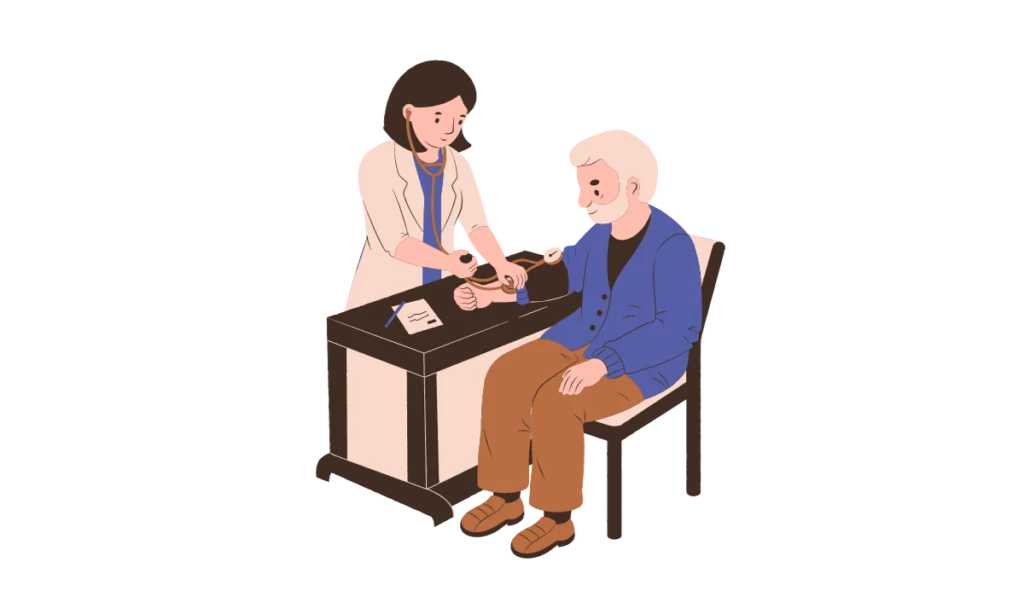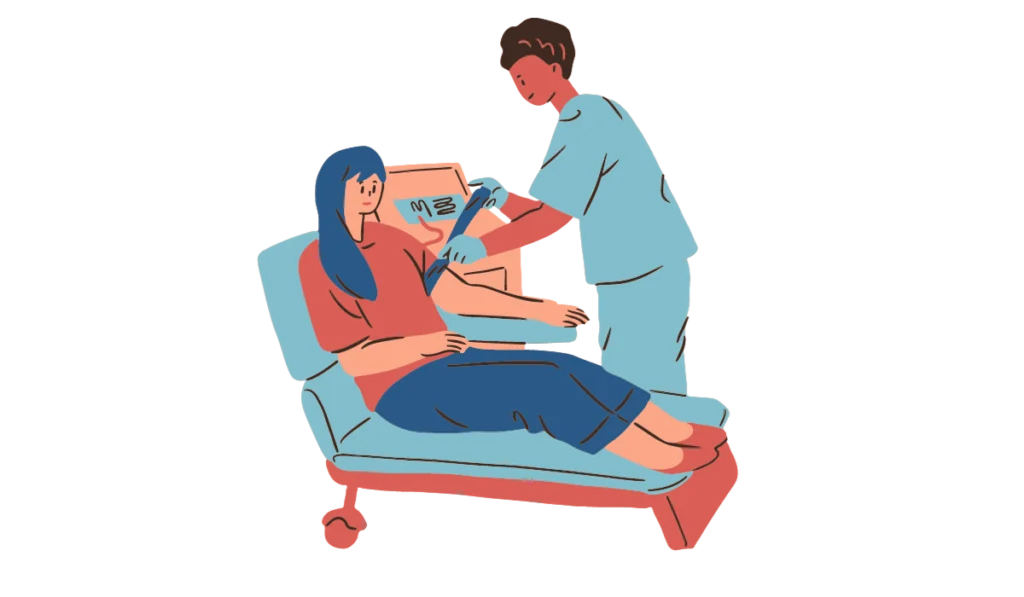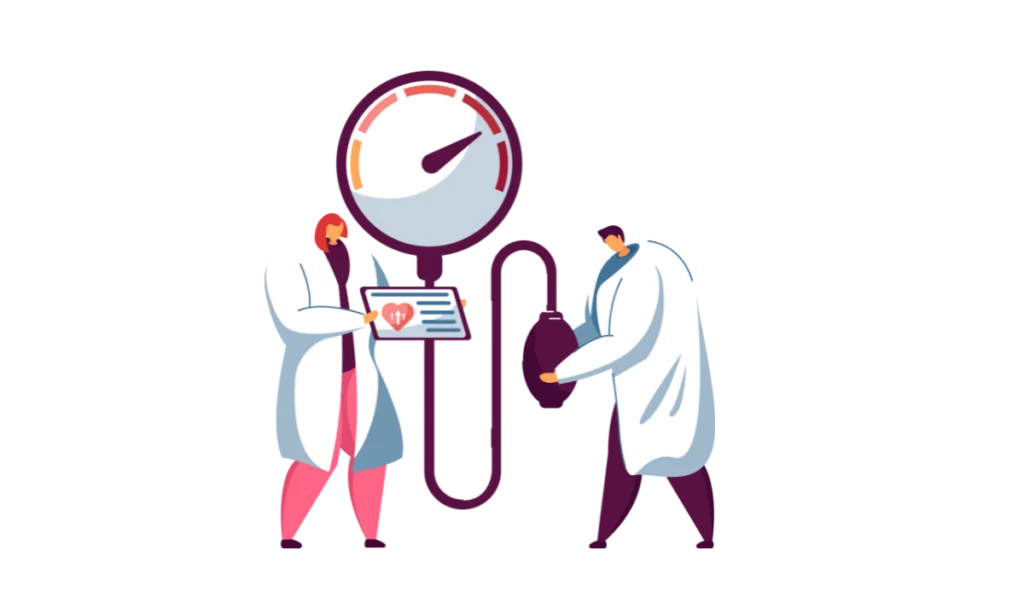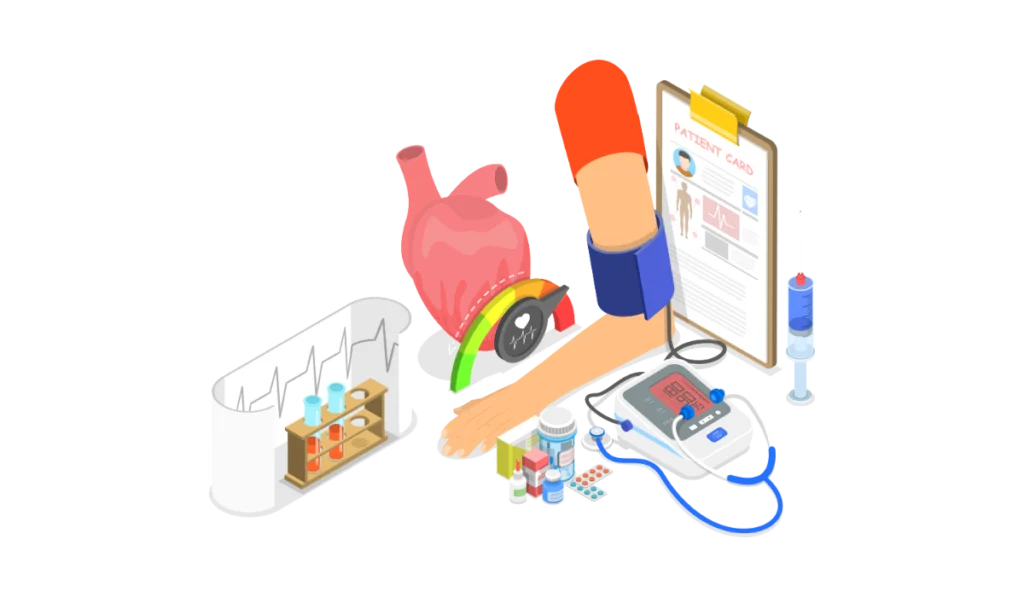Heart Diseases Secrets Hidden in Your Gut Bacteria
Unlock the secrets of heart diseases with the latest gut bacteria research! Discover how your microbiome holds the key to a healthier heart.

In This Article:
Key Points
- Gut bacteria may contribute to inflammation and alter lipid profiles, which can impact how the body handles fat and lead to atherosclerosis.
- Certain gut bacteria can leave their DNA within arterial plaques, indicating a direct role in the development of atherosclerosis.
- Gut bacteria can influence metabolism, insulin resistance, and hormone control, all of which can contribute to atherosclerosis.
- An off-balance gut microbiota may be involved in orchestrating high blood pressure.
- Dysbiosis, an imbalance in the gut microbiota, has been linked to the narrowing of arteries and the development of hypertension.
- Probiotics, prebiotics, and symbiotics have emerged as potential heroes in the fight against cardiovascular diseases.
- Dietary changes, such as consuming more fruits, vegetables, whole grains, and omega-3 fats, can positively impact gut health and reduce the risk of heart disease.
- Fecal Microbiota Transplantation (FMT) is a medical procedure that involves transferring healthy gut bacteria from a donor to a patient. It has shown promising results in reducing heart inflammation and improving blood vessel function in mice and hypertensive rats, but more human trials are needed before it can be considered a mainstream treatment for heart diseases.
Interactions between the gut microbiota and heart diseases
The Hidden Link: Gut Bacteria's Role in Atherosclerosis Explained
Atherosclerosis, a sneaky assailant of the arteries, is a condition where our blood highways narrow due to plaque buildup, posing risks of heart attacks and strokes A Trusted Source Moore KJ, Sheedy FJ, Fisher EA. Macrophages in atherosclerosis: a dynamic balance.Nat Rev Immunol(2013) 13:709–21. doi: 10.1038/nri3520 PubMed AbstractCrossRef Full TextGoogle Scholar A Trusted Source Malekmohammad K, Bezsonov EE, Rafieian-Kopaei M. Role of lipid accumulation and inflammation in atherosclerosis: focus on molecular and cellular mechanisms.Front Cardiovasc Med(2021) 8:707529. doi: 10.3389/fcvm.2021.707529 PubMed AbstractCrossRef Full TextGoogle Scholar.

At the heart of this issue is inflammation, orchestrated by our immune system and resulting in precarious plaque prone to causing dangerous blockages A Trusted Source Roy P, Orecchioni M, Ley K. How the immune system shapes atherosclerosis: roles of innate and adaptive immunity.Nat Rev Immunol(2022) 22:251–65. doi: 10.1038/s41577-021-00584-1 PubMed AbstractCrossRef Full TextGoogle Scholar A Trusted Source Forteza MJ, Ketelhuth DFJ. Metabolism in atherosclerotic plaques: immunoregulatory mechanisms in the arterial wall.Clin Sci (Lond)(2022) 136:435–54. doi: 10.1042/CS20201293 PubMed AbstractCrossRef Full TextGoogle Scholar.
Recent discoveries spotlight our gut microbiota—those trillions of bacteria residing in our intestines—as potential puppeteers in atherosclerosis.
They may influence inflammation and tweak our lipid profiles, thus altering how our bodies handle fat A Trusted Source Novakovic M, Rout A, Kingsley T, Kirchoff R, Singh A, Verma V, et al. Role of gut microbiota in cardiovascular diseases.World J Cardiol(2020) 12:110–22. doi: 10.4330/wjc.v12.i4.110 PubMed AbstractCrossRef Full TextGoogle Scholar.
Some gut residents can hitch a ride to our hearts, leaving their DNA within arterial plaques, suggesting a direct role in the disease's development A Trusted Source Xu H, Wang X, Feng W, Liu Q, Zhou S, Liu Q, et al. The gut microbiota and its interactions with cardiovascular disease.Microb Biotechnol(2020) 13:637–56. doi: 10.1111/1751-7915.13524 PubMed AbstractCrossRef Full TextGoogle Scholar.
Our gut microbes churn out inflammatory molecules like LPS, stirring up immune responses that can draw inflammatory cells to our artery walls A Trusted Source Gorabi AM, Kiaie N, Khosrojerdi A, Jamialahmadi T, Al-Rasadi K, Johnston TP, et al. Implications for the role of lipopolysaccharide in the development of atherosclerosis.Trends Cardiovasc Med(2022) 32:525–33. doi: 10.1016/j.tcm.2021.08.015 PubMed AbstractCrossRef Full TextGoogle Scholar.
They also transform certain foods into trimethylamine N-oxide (TMAO), a molecule that encourages arterial cells to hoard fats, setting the stage for plaque formation A Trusted Source Drosos I, Tavridou A, Kolios G. New aspects on the metabolic role of intestinal microbiota in the development of atherosclerosis.Metabolism(2015) 64:476–81. doi: 10.1016/j.metabol.2015.01.007 PubMed AbstractCrossRef Full TextGoogle Scholar.
Aside from stoking inflammation, gut bacteria can also shake up our metabolism, tipping the scales toward insulin resistance and
even messing with hormones that control appetite—all roads leading to atherosclerosis A Trusted Source Koh KK, Park SM, Quon MJ. Leptin and cardiovascular disease: response to therapeutic interventions.Circulation(2008) 117:3238–49. doi: 10.1161/CIRCULATIONAHA.107.741645 PubMed AbstractCrossRef Full TextGoogle Scholar.
The building of these arterial plaques kicks off with the endothelial cells, the inner lining of our blood vessels, getting damaged by lifestyle foes like high blood pressure or smoking A Trusted Source Forteza MJ, Ketelhuth DFJ. Metabolism in atherosclerotic plaques: immunoregulatory mechanisms in the arterial wall.Clin Sci (Lond)(2022) 136:435–54. doi: 10.1042/CS20201293 PubMed AbstractCrossRef Full TextGoogle Scholar.
As these cells weaken, lipids sneak in, white blood cells morph into foam cells laden with fat, and before you know it, plaques start squatting in your arteries A Trusted Source Bjorkegren JLM, Lusis AJ. Atherosclerosis: recent developments.Cell(2022) 185:1630–45. doi: 10.1016/j.cell.2022.04.004 PubMed AbstractCrossRef Full TextGoogle Scholar.
If these plaques get too bulky or burst, they can halt blood flow or create clots, a direct expressway to heart attacks or strokes A Trusted Source Javadifar A, Rastgoo S, Banach M, Jamialahmadi T, Johnston TP, Sahebkar A. Foam cells as therapeutic targets in atherosclerosis with a focus on the regulatory roles of non-coding RNAs.Int J Mol Sci(2021) 22(5):2529. doi: 10.3390/ijms22052529 PubMed AbstractCrossRef Full TextGoogle Scholar A Trusted Source Wang D, Yang Y, Lei Y, Tzvetkov NT, Liu X, Yeung AWK, et al. Targeting foam cell formation in atherosclerosis: therapeutic potential of natural products.Pharmacol Rev(2019) 71:596–670. doi: 10.1124/pr.118.017178 PubMed AbstractCrossRef Full TextGoogle Scholar.
Now, let's talk about fat—especially triglycerides.
A surplus of calories and bad fats can increase triglycerides, leading to fatty liver and plumper fat cells A Trusted Source Bjorkegren JLM, Lusis AJ. Atherosclerosis: recent developments.Cell(2022) 185:1630–45. doi: 10.1016/j.cell.2022.04.004 PubMed AbstractCrossRef Full TextGoogle Scholar.
As the body becomes resistant to insulin, inflammation ramps up, and our arteries pay the price.
Remember TMAO, the gut-bacteria-produced troublemaker?
It's not acting alone.
It's part of a broader scene involving VLDL—fat-packed particles produced in the liver.
When these particles hit the adipose tissue, they're stored as triglycerides, inching us closer to inflammation and insulin resistance A Trusted Source Bjorkegren JLM, Lusis AJ. Atherosclerosis: recent developments.Cell(2022) 185:1630–45. doi: 10.1016/j.cell.2022.04.004 PubMed AbstractCrossRef Full TextGoogle Scholar.
This dance between metabolism and atherosclerosis isn't solo; it's a complex routine involving various factors, highlighting the multi-faced nature of this artery-clogging condition A Trusted Source Drosos I, Tavridou A, Kolios G. New aspects on the metabolic role of intestinal microbiota in the development of atherosclerosis.Metabolism(2015) 64:476–81. doi: 10.1016/j.metabol.2015.01.007 PubMed AbstractCrossRef Full TextGoogle Scholar.
Though we're still piecing together how our gut residents chat with our arteries, one thing's clear: looking after our diet, staying active, and avoiding smoking can help keep our arterial pathways clear and flowing smoothly.
Gut Health: The Surprising Key to Taming High Blood Pressure
Hypertension, the silent thief of health affecting a third of adults globally, is not just a product of our genes but also our lifestyle A Trusted Source Al Khodor S, Reichert B, Shatat IF. The microbiome and blood pressure: can microbes regulate our blood pressure?Front Pediatr(2017) 5:138. doi: 10.3389/fped.2017.00138PubMed AbstractCrossRef Full TextGoogle Scholar A Trusted Source Giri A, Hellwege JN, Keaton JM, Park J, Qiu C, Warren HR, et al. Trans-ethnic association study of blood pressure determinants in over 750,000 individuals.Nat Genet(2019) 51:51–62. doi: 10.1038/s41588-018-0303-9 PubMed AbstractCrossRef Full TextGoogle Scholar.
Excess salt, a love for alcohol, and a sedentary life aren't doing our blood pressure any favors A Trusted Source Ma J, Li H. The role of gut microbiota in atherosclerosis and hypertension.Front Pharmacol(2018) 9:1082. doi: 10.3389/fphar.2018.01082 PubMed AbstractCrossRef Full TextGoogle Scholar A Trusted Source Al Khodor S, Reichert B, Shatat IF. The microbiome and blood pressure: can microbes regulate our blood pressure?Front Pediatr(2017) 5:138. doi: 10.3389/fped.2017.00138 PubMed AbstractCrossRef Full TextGoogle Scholar.
But did you know the tiny microbes in your gut might also be pulling the strings?
Cutting-edge research has unearthed a curious connection between our gut flora and hypertension.
An off-balance gut microbiota—think less variety and an altered bacterial lineup—could be quietly orchestrating high blood pressure A Trusted Source Guo Y, Li X, Wang Z, Yu B. Gut microbiota dysbiosis in human hypertension: A systematic review of observational studies.Front Cardiovasc Med(2021) 8:650227. doi: 10.3389/fcvm.2021.650227 PubMed AbstractCrossRef Full TextGoogle Scholar.
Some gut bacteria are like double agents; while some create anti-inflammatory substances helping our blood pressure, others might be nudging it up A Trusted Source Guo Y, Li X, Wang Z, Yu B. Gut microbiota dysbiosis in human hypertension: A systematic review of observational studies.Front Cardiovasc Med(2021) 8:650227. doi: 10.3389/fcvm.2021.650227 PubMed AbstractCrossRef Full TextGoogle Scholar.
These microbes might even sway how our bodies handle vital nutrients like sodium and potassium, crucial regulators of blood pressure A Trusted Source Wang Y, Wang H, Howard AG, Tsilimigras MCB, Avery CL, Meyer KA, et al. Associations of sodium and potassium consumption with the gut microbiota and host metabolites in a population-based study in Chinese adults.Am J Clin Nutr(2020) 112:1599–612. doi: 10.1093/ajcn/nqaa263 PubMed AbstractCrossRef Full TextGoogle Scholar.
When the delicate balance of these elements is disrupted, our blood pressure may pay the price.
There's a term for this microbial mischief—dysbiosis—and it's been linked to the narrowing of arteries, setting the stage for hypertension and heart issues A Trusted Source Lau K, Srivatsav V, Rizwan A, Nashed A, Liu R, Shen R, et al. Bridging the gap between gut microbial dysbiosis and cardiovascular diseases.Nutrients(2017) 9(8):859. doi: 10.3390/nu9080859 PubMed AbstractCrossRef Full TextGoogle Scholar.

While the relationship between TMAO—a molecule produced by gut bacteria—and high blood pressure is still being pieced together,
there's evidence that it may fan the flames of inflammation and make our blood more likely to clot A Trusted Source Wang H, Luo Q, Ding X, Chen L, Zhang Z. Trimethylamine N-oxide and its precursors in relation to blood pressure: A mendelian randomization study.Front Cardiovasc Med(2022) 9:922441. doi: 10.3389/fcvm.2022.922441PubMed AbstractCrossRef Full TextGoogle Scholar A Trusted Source Jiang S, Shui Y, Cui Y, Tang C, Wang X, Qiu X, et al. Gut microbiota dependent trimethylamine N-oxide aggravates angiotensin II-induced hypertension.Redox Biol(2021) 46:102115. doi: 10.1016/j.redox.2021.102115PubMed AbstractCrossRef Full TextGoogle Scholar.
The plot thickens with the discovery that certain short-chain fatty acids (SCFAs), produced by our gut friends, might hold the power to moderate blood pressure by interacting with specific pathways in our body A Trusted Source Kang Y, Cai Y. Gut microbiota and hypertension: From pathogenesis to new therapeutic strategies.Clin Res Hepatol Gastroenterol(2018) 42:110–7. doi: 10.1016/j.clinre.2017.09.006 PubMed AbstractCrossRef Full TextGoogle Scholar.
Altered levels of these SCFAs have been spotted in hypertension, suggesting a possible link to blood pressure regulation A Trusted Source Guo Y, Li X, Wang Z, Yu B. Gut microbiota dysbiosis in human hypertension: A systematic review of observational studies.Front Cardiovasc Med(2021) 8:650227. doi: 10.3389/fcvm.2021.650227 PubMed AbstractCrossRef Full TextGoogle Scholar.
Investigations in rats have given us a peek into this complex web, showing shifts in gut bacteria associated with high blood pressure A Trusted Source Yang T, Santisteban MM, Rodriguez V, Li E, Ahmari N, Carvajal JM, et al. Gut dysbiosis is linked to hypertension.Hypertension(2015) 65:1331–40. doi: 10.1161/HYPERTENSIONAHA.115.05315 PubMed AbstractCrossRef Full TextGoogle Scholar.
For instance, an increase in certain bacteria like Klebsiella and a drop in friendly ones like Bifidobacterium has been noted A Trusted Source Li J, Zhao F, Wang Y, Chen J, Tao J, Tian G, et al. Gut microbiota dysbiosis contributes to the development of hypertension.Microbiome(2017) 5:14. doi: 10.1186/s40168-016-0222-x PubMed AbstractCrossRef Full TextGoogle Scholar.
These tiny organisms might just influence the whole blood pressure narrative more than we thought.
Studies have also shown that tweaking diets to reduce TMAO levels might be a promising way to combat high blood pressure,
pointing towards plant-forward eating habits as a potential key to better heart health A Trusted Source Tuttolomondo A, Simonetta I, Daidone M, Mogavero A, Ortello A, Pinto A. Metabolic and vascular effect of the mediterranean diet.Int J Mol Sci(2019) 20(19):4716. doi: 10.3390/ijms20194716 PubMed AbstractCrossRef Full TextGoogle Scholar.
Gut Makeover: Simple Lifestyle Tweaks for Heart Health
Revamping gut health may be the next frontier for boosting heart health and overall wellness.
From probiotics to fecal transplants, the ways to tweak gut microbes are diverse A Trusted Source Wong MK, Barbulescu P, Coburn B, Reguera-Nunez E. Therapeutic interventions and mechanisms associated with gut microbiota-mediated modulation of immune checkpoint inhibitor responses.Microbes Infect(2021) 23:104804. doi: 10.1016/j.micinf.2021.104804 PubMed AbstractCrossRef Full TextGoogle Scholar.
But it's not just about popping a pill; real success comes from combining these with healthier living—think regular exercise, catching the right rays for vitamin D, syncing with your body clock, and keeping stress in check A Trusted Source Martel J, Chang SH, Ko YF, Hwang TL, Young JD, Ojcius DM. Gut barrier disruption and chronic disease.Trends Endocrinol Metab(2022) 33:247–65. doi: 10.1016/j.tem.2022.01.002 PubMed AbstractCrossRef Full TextGoogle Scholar.
A well-rounded approach could be the key to unlocking a happier gut and a healthier heart A Trusted Source Salvucci E. The human-microbiome superorganism and its modulation to restore health.Int J Food Sci Nutr(2019) 70:781–95. doi: 10.1080/09637486.2019.1580682 PubMed AbstractCrossRef Full TextGoogle Scholar A Trusted Source Hasan N, Yang H. Factors affecting the composition of the gut microbiota, and its modulation.PeerJ(2019) 7:e7502. doi: 10.7717/peerj.7502 PubMed AbstractCrossRef Full TextGoogle Scholar.
The Power of Gut Allies – Probiotics, Prebiotics, and Beyond
In the quest for a healthy heart, it turns out our gut might hold some of the answers.
Probiotics, prebiotics, and symbiotics are emerging as potential heroes in the fight against cardiovascular diseases (CVDs), and researchers are taking notice A Trusted Source Ahmadian F, Razmpoosh E, Ejtahed HS, Javadi M, Mirmiran P, Azizi F. Effects of probiotic supplementation on major cardiovascular-related parameters in patients with type-2 diabetes mellitus: a secondary-data analysis of a randomized double-blind controlled trial.Diabetol Metab Syndr(2022) 14:52. doi: 10.1186/s13098-022-00822-z PubMed AbstractCrossRef Full TextGoogle Scholar.
Probiotics are live microorganisms that, when consumed in the right amounts, can bestow health benefits like improving gut health and even preventing diseases.
Think of them as friendly bacteria that wage war against disease-causing pathogens, keeping your body’s ecosystem balanced A Trusted Source Hill C, Guarner F, Reid G, Gibson GR, Merenstein DJ, Pot B, et al. Expert consensus document. The International Scientific Association for Probiotics and Prebiotics consensus statement on the scope and appropriate use of the term probiotic.Nat Rev Gastroenterol Hepatol(2014) 11:506–14. doi: 10.1038/nrgastro.2014.66 PubMed AbstractCrossRef Full TextGoogle Scholar.
For heart health, these tiny allies might just be the ticket, with certain strains showing promise in managing blood pressure and cholesterol levels A Trusted Source26. Martel J, Chang SH, Ko YF, Hwang TL, Young JD, Ojcius DM. Gut barrier disruption and chronic disease.Trends Endocrinol Metab(2022) 33:247–65. doi: 10.1016/j.tem.2022.01.002PubMed AbstractCrossRef Full TextGoogle Scholar.
Prebiotics, on the other hand, aren’t digested by us but by our gut flora.
They are like fertilizers that stimulate the growth of beneficial bacteria.
These substances have been found to lower cholesterol by interrupting its absorption and increasing the breakdown of bile acids (BAs) A Trusted Source Megur A, Daliri EB, Baltriukiene D, Burokas A. Prebiotics as a tool for the prevention and treatment of obesity and diabetes: classification and ability to modulate the gut microbiota.Int J Mol Sci(2022) 23(11):6097. doi: 10.3390/ijms23116097 PubMed AbstractCrossRef Full TextGoogle Scholar.
Plus, they're considered safe with minimal side effects A Trusted Source Wu H, Chiou J. Potential benefits of probiotics and prebiotics for coronary heart disease and stroke.Nutrients(2021) 13(4):1172. doi: 10.3390/nu13082878 PubMed AbstractCrossRef Full TextGoogle Scholar A Trusted Source Olas B. Probiotics, prebiotics and synbiotics-A promising strategy in prevention and treatment of cardiovascular diseases?Int J Mol Sci(2020) 21(24):9737. doi: 10.3390/ijms21249737 PubMed AbstractCrossRef Full TextGoogle Scholar.
Then there are symbiotics, a combination of both probiotics and prebiotics, designed to ensure that the probiotics thrive in the gut.
This dynamic duo works together to bolster gut health, enhance the immune system, and may even play a role in preventing or managing diseases such as obesity, diabetes, and certain gut disorders A Trusted Source Akutko K, Stawarski A. Probiotics, prebiotics and synbiotics in inflammatory bowel diseases.J Clin Med(2021) 10(11):2466. doi: 10.3390/jcm10112466PubMed AbstractCrossRef Full TextGoogle Scholar A Trusted Source Simon E, Calinoiu LF, Mitrea L, Vodnar DC. Probiotics, prebiotics, and synbiotics: implications and beneficial effects against irritable bowel syndrome.Nutrients(2021) 13(6):2112. doi: 10.3390/nu13062112 PubMed AbstractCrossRef Full TextGoogle Scholar.
However, there's a twist in the tale.

Antibiotics, often lifesavers against infections, can disrupt the gut's microbial harmony, sometimes with long-term consequences A Trusted Source Abushaheen MA, Muzaheed, Fatani AJ, Alosaimi M, Mansy W, George M, et al. Antimicrobial resistance, mechanisms and its clinical significance.Dis Mon(2020) 66:100971. doi: 10.1016/j.disamonth.2020.100971 PubMed AbstractCrossRef Full TextGoogle Scholar A Trusted Source Ramirez J, Guarner F, Bustos Fernandez L, Maruy A, Sdepanian VL, Cohen H. Antibiotics as major disruptors of gut microbiota.Front Cell Infect Microbiol(2020) 10:572912. doi: 10.3389/fcimb.2020.572912 PubMed AbstractCrossRef Full TextGoogle Scholar.
This disruption can have ripple effects, such as increased cardiovascular risk A Trusted Source Tabit CE, Chung WB, Hamburg NM, Vita JA. Endothelial dysfunction in diabetes mellitus: molecular mechanisms and clinical implications.Rev Endocr Metab Disord(2010) 11:61–74. doi: 10.1007/s11154-010-9134-4 PubMed AbstractCrossRef Full TextGoogle Scholar A Trusted Source Longo L, Rampelotto PH, Filippi-Chiela E, de Souza VEG, Salvati F, Cerski CT, et al. Gut dysbiosis and systemic inflammation promote cardiomyocyte abnormalities in an experimental model of steatohepatitis.World J Hepatol(2021) 13:2052–70. doi: 10.4254/wjh.v13.i12.2052 PubMed AbstractCrossRef Full TextGoogle Scholar.
But introducing probiotics and prebiotics during or after antibiotic treatments can help restore balance and protect the heart A Trusted Source Markowiak P, Slizewska K. Effects of probiotics, prebiotics, and synbiotics on human health.Nutrients(2017) 9(9):1021. doi: 10.3390/nu9091021 PubMed AbstractCrossRef Full TextGoogle Scholar A Trusted Source Patangia DV, Anthony Ryan C, Dempsey E, Paul Ross R, Stanton C. Impact of antibiotics on the human microbiome and consequences for host health.Microbiologyopen(2022) 11:e1260. doi: 10.1002/mbo3.1260 PubMed AbstractCrossRef Full TextGoogle Scholar.
Gut Health Revolution: Eat, Move, and Thrive for a Happier Heart
Our gut is like a bustling city, home to trillions of microbes that can have a massive impact on our heart health.
The food we eat, how much we move, and even the amount of sleep we get can change the composition of our gut microbiota – for better or for worse A Trusted Source Hasan N, Yang H. Factors affecting the composition of the gut microbiota, and its modulation.PeerJ(2019) 7:e7502. doi: 10.7717/peerj.7502 PubMed AbstractCrossRef Full TextGoogle Scholar A Trusted Source Qin Y, Havulinna AS, Liu Y, Jousilahti P, Ritchie SC, Tokolyi A, et al. Combined effects of host genetics and diet on human gut microbiota and incident disease in a single population cohort.Nat Genet(2022) 54:134–42. doi: 10.1038/s41588-021-00991-z PubMed AbstractCrossRef Full TextGoogle Scholar.
Here's the deal: loading up on fruits, veggies, and whole grains and cutting down on processed foods and sugars can tip the scales toward a healthier heart A Trusted Source Singh RK, Chang HW, Yan D, Lee KM, Ucmak D, Wong K, et al. Influence of diet on the gut microbiome and implications for human health.J Transl Med(2017) 15:73. doi: 10.1186/s12967-017-1175-y PubMed AbstractCrossRef Full TextGoogle Scholar.
These foods are the good guys, promoting beneficial gut bacteria like Bifidobacteria and Lactobacilli, which love to munch on dietary fibers and produce substances that are great for our health A Trusted Source Peng L, Li ZR, Green RS, Holzman IR, Lin J. Butyrate enhances the intestinal barrier by facilitating tight junction assembly via activation of AMP-activated protein kinase in Caco-2 cell monolayers.J Nutr(2009) 139:1619–25. doi: 10.3945/jn.109.104638 PubMed AbstractCrossRef Full TextGoogle Scholar A Trusted Source Allaire JM, Crowley SM, Law HT, Chang SY, Ko HJ, Vallance BA. The intestinal epithelium: central coordinator of mucosal immunity.Trends Immunol(2018) 39:677–96. doi: 10.1016/j.it.2018.04.002 PubMed AbstractCrossRef Full TextGoogle Scholar.
For example, the Mediterranean diet, a superstar in the nutrition world, is loaded with these plant-based goodies and has been linked to lower risks of heart troubles A Trusted Source Zhang X, Gerard P. Diet-gut microbiota interactions on cardiovascular disease.Comput Struct Biotechnol J(2022) 20:1528–40. doi: 10.1016/j.csbj.2022.03.028 PubMed AbstractCrossRef Full TextGoogle Scholar A Trusted Source Tuttolomondo A, Simonetta I, Daidone M, Mogavero A, Ortello A, Pinto A. Metabolic and vascular effect of the mediterranean diet.Int J Mol Sci(2019) 20(19):4716. doi: 10.3390/ijms20194716 PubMed AbstractCrossRef Full TextGoogle Scholar.
And let's not forget the fats – the good kinds, like omega-3s, which are allies of our gut bacteria and our hearts A Trusted Source Costantini L, Molinari R, Farinon B, Merendino N. Impact of omega-3 fatty acids on the gut microbiota.Int J Mol Sci(2017) 18(12):2645. doi: 10.3390/ijms18122645 PubMed AbstractCrossRef Full TextGoogle Scholar.
Researchers have discovered that switching from a greasy, fast-food-laden Western diet to a Mediterranean feast can change the gut microbiota for the better, and quickly A Trusted Source Nagpal R, Shively CA, Register TC, Craft S, Yadav H. Gut microbiome-Mediterranean diet interactions in improving host health.F1000Res(2019) 8:699. doi: 10.12688/f1000research.18992.1 PubMed AbstractCrossRef Full TextGoogle Scholar A Trusted Source Garcia-Montero C, Fraile-Martinez O, Gomez-Lahoz AM, Pekarek L, Castellanos AJ, Noguerales-Fraguas F, et al. Nutritional components in western diet versus mediterranean diet at the gut microbiota-immune system interplay. Implications for health and disease.Nutrients(2021) 13(2):699. doi: 10.3390/nu13020699 PubMed AbstractCrossRef Full TextGoogle Scholar.
Moving onto movement – yes, exercise! Physical activity is like a tune-up for our body; it gets the blood pumping and keeps the heart strong A Trusted Source Martinez JE, Kahana DD, Ghuman S, Wilson HP, Wilson J, Kim SCJ, et al. Unhealthy lifestyle and gut dysbiosis: A better understanding of the effects of poor diet and nicotine on the intestinal microbiome.Front Endocrinol (Lausanne)(2021) 12:667066. doi: 10.3389/fendo.2021.667066 PubMed AbstractCrossRef Full TextGoogle Scholar A Trusted Source Durk RP, Castillo E, Marquez-Magana L, Grosicki GJ, Bolter ND, Lee CM, et al. Gut microbiota composition is related to cardiorespiratory fitness in healthy young adults.Int J Sport Nutr Exerc Metab(2019) 29:249–53. doi: 10.1123/ijsnem.2018-0024 PubMed AbstractCrossRef Full TextGoogle Scholar.
Even when we indulge in richer foods, exercise can still safeguard our gut's lining and fend off inflammation A Trusted Source Monda V, Villano I, Messina A, Valenzano A, Esposito T, Moscatelli F, et al. Exercise modifies the gut microbiota with positive health effects.Oxid Med Cell Longev(2017) 2017:3831972. doi: 10.1155/2017/3831972 PubMed AbstractCrossRef Full TextGoogle Scholar.
Studies with humans and animals show that regular workouts can increase the production of beneficial compounds like butyrate, which keeps our blood vessels running smoothly and reduces heart disease risk A Trusted Source Matsumoto M, Inoue R, Tsukahara T, Ushida K, Chiji H, Matsubara N, et al. Voluntary running exercise alters microbiota composition and increases n-butyrate concentration in the rat cecum.Biosci Biotechnol Biochem(2008) 72:572–6. doi: 10.1271/bbb.70474 PubMed AbstractCrossRef Full TextGoogle Scholar.
But here's the thing: while breaking a sweat is fantastic, it's not a hall pass to eat junk food.
A healthy diet and regular exercise are partners in crime when it comes to fighting against cardiovascular diseases.
They're the dynamic duo your gut needs to keep your heart beating strong and true.
In essence, the path to a happy heart is through a happy gut.
So, eat those fiber-rich foods, take those omega-3s, and keep moving.
Your gut microbes will cheer, and your heart will thank you.
Gut Bacteria Swap: Can FMT Be the Heart's New Hero?
Fecal Microbiota Transplantation (FMT) is a groundbreaking medical procedure that involves giving a patient good bacteria from a healthy person's gut.
This method aims to fix the imbalance of gut bacteria — a condition called dysbiosis — which can cause unpleasant symptoms and increase the risk of serious conditions like inflammatory bowel disease and infections A Trusted Source Almeida C, Oliveira R, Baylina P, Fernandes R, Teixeira FG, Barata P. Current trends and challenges of fecal microbiota transplantation-an easy method that works for all?Biomedicines(2022) 10(11):2742. doi: 10.3390/biomedicines10112742 PubMed AbstractCrossRef Full TextGoogle Scholar.

The most impressive success of FMT has been with stubborn Clostridium difficile infections, but now, scientists are eyeing its potential against heart diseases A Trusted Source Leshem A, Horesh N, Elinav E. Fecal microbial transplantation and its potential application in cardiometabolic syndrome.Front Immunol(2019) 10:1341. doi: 10.3389/fimmu.2019.01341 PubMed AbstractCrossRef Full TextGoogle Scholar A Trusted Source Gilbert JA, Blaser MJ, Caporaso JG, Jansson JK, Lynch SV, Knight R. Current understanding of the human microbiome.Nat Med(2018) 24:392–400. doi: 10.1038/nm.4517 PubMed AbstractCrossRef Full TextGoogle Scholar.
It works by introducing healthy donor stool into the patient’s gut, typically through procedures like colonoscopies or enemas, or even orally, to rebuild a healthy, diverse bacterial community A Trusted Source Ooijevaar RE, Terveer EM, Verspaget HW, Kuijper EJ, Keller JJ. Clinical application and potential of fecal microbiota transplantation.Annu Rev Med(2019) 70:335–51. doi: 10.1146/annurev-med-111717-122956 PubMed AbstractCrossRef Full TextGoogle Scholar A Trusted Source Gulati M, Singh SK, Corrie L, Kaur IP, Chandwani L. Delivery routes for faecal microbiota transplants: Available, anticipated and aspired.Pharmacol Res(2020) 159:104954. doi: 10.1016/j.phrs.2020.104954 PubMed AbstractCrossRef Full TextGoogle Scholar.
While we're starting to connect the dots between gut bacteria and heart health, studies on FMT's direct effects on cardiovascular diseases (CVDs) are still in their early days.
Some mouse studies have shown promising signs, like reducing heart inflammation and improving blood vessel function, suggesting it could one day be a treatment strategy for conditions like myocarditis A Trusted Source Hu XF, Zhang WY, Wen Q, Chen WJ, Wang ZM, Chen J, et al. Fecal microbiota transplantation alleviates myocardial damage in myocarditis by restoring the microbiota composition.Pharmacol Res(2019) 139:412–21. doi: 10.1016/j.phrs.2018.11.042 PubMed AbstractCrossRef Full TextGoogle Scholar.
Other research in hypertensive rats has revealed that FMT might lower blood pressure by affecting nerve activity and increasing beneficial compounds from fiber digestion A Trusted Source Toral M, Robles-Vera I, de la Visitacion N, Romero M, Yang T, Sanchez M, et al. Critical role of the interaction gut microbiota - sympathetic nervous system in the regulation of blood pressure.Front Physiol(2019) 10:231. doi: 10.3389/fphys.2019.00231 PubMed AbstractCrossRef Full TextGoogle Scholar.
On the flip side, there's also evidence that not all FMT effects are beneficial — it could potentially transfer susceptibility to conditions like atherosclerosis too A Trusted Source Gregory JC, Buffa JA, Org E, Wang Z, Levison BS, Zhu W, et al. Transmission of atherosclerosis susceptibility with gut microbial transplantation.J Biol Chem(2015) 290:5647–60. doi: 10.1074/jbc.M114.618249 PubMed AbstractCrossRef Full TextGoogle Scholar.
In summary, there's an exciting connection between our gut residents and heart health.
However, we need more human trials before FMT can join the mainstream treatment list for heart diseases.
Even though some scientists are rooting for its success and high efficacy, others remind us that FMT is still in the experimental phase and not widely approved A Trusted Source Almeida C, Oliveira R, Baylina P, Fernandes R, Teixeira FG, Barata P. Current trends and challenges of fecal microbiota transplantation-an easy method that works for all?Biomedicines(2022) 10(11):2742. doi: 10.3390/biomedicines10112742 PubMed AbstractCrossRef Full TextGoogle Scholar A Trusted Source Carlson PE Jr. Regulatory considerations for fecal microbiota transplantation products.Cell Host Microbe(2020) 27:173–5. doi: 10.1016/j.chom.2020.01.018 PubMed AbstractCrossRef Full TextGoogle Scholar.
So, could FMT be the next big thing in heart health?
Time and research will tell, but it's definitely a space to watch!
Discussion and Conclusion
- The article highlights the potential role of gut bacteria in the development of atherosclerosis and hypertension, two cardiovascular diseases.
- Gut bacteria can contribute to inflammation and alter lipid profiles, leading to plaque formation and narrowing of arteries.
- Certain gut bacteria can leave their DNA within arterial plaques, indicating a direct involvement in atherosclerosis.
- Dysbiosis, an imbalance in the gut microbiota, has been linked to the narrowing of arteries and the development of hypertension.
- Probiotics, prebiotics, and symbiotics have emerged as potential strategies to improve heart health by promoting a healthy gut microbiota.
- Lifestyle factors such as a healthy diet, regular exercise, and avoiding smoking can positively impact gut health and reduce the risk of heart disease.
- Fecal Microbiota Transplantation (FMT) shows promise as a treatment strategy for heart diseases, but more research is needed to determine its effectiveness and safety in humans.
- Overall, maintaining a healthy gut microbiota through various interventions and lifestyle modifications may have a positive impact on heart health.
Review date not set.
How we reviewed this article:
Latest on:





